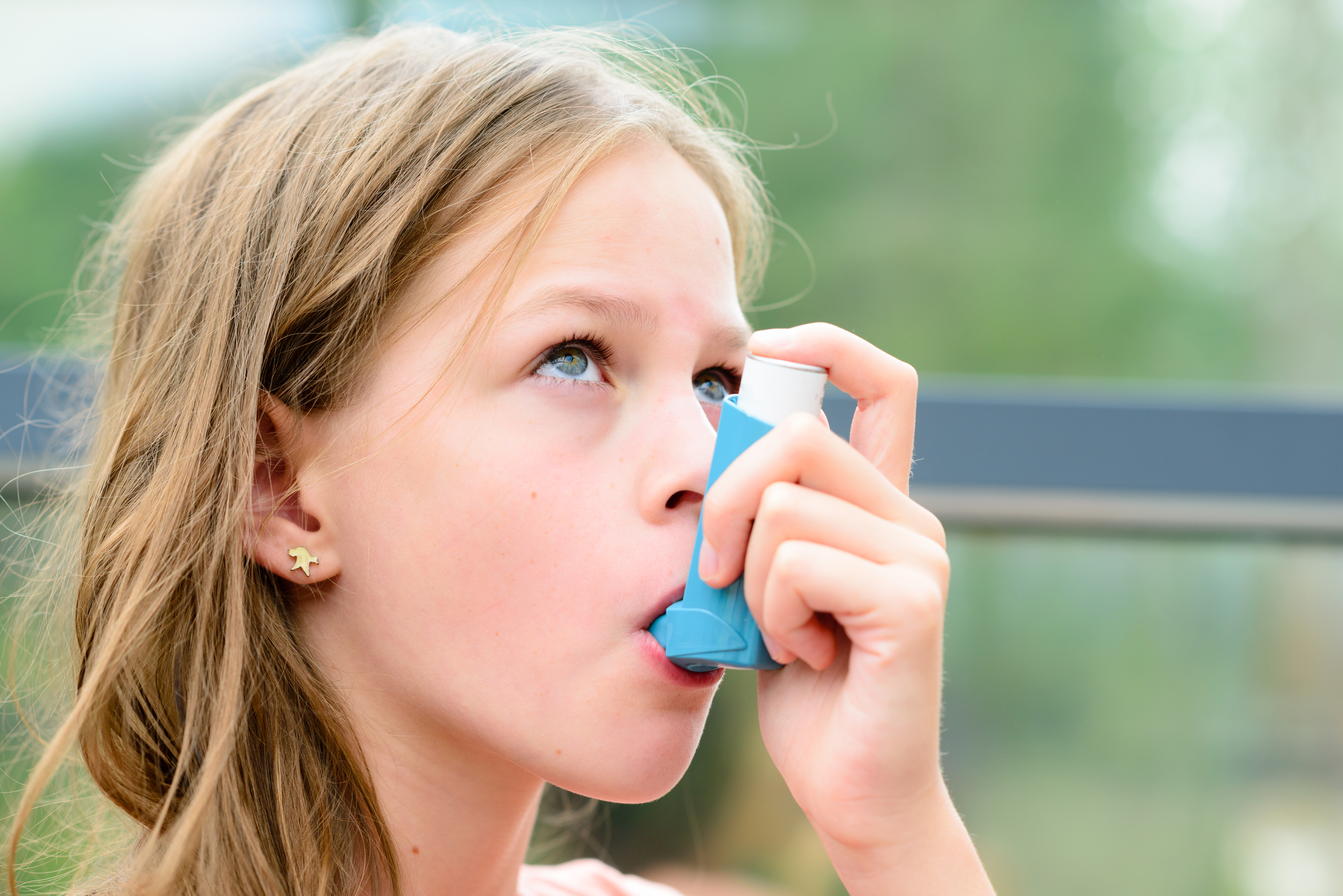
Asthma affects people of all ages, but it often begins in childhood. Asthma is the leading cause of illness of children – around 7 million children have asthma in the US alone, and for unknown reasons that number is on a steady rise. As a parent, it’s important to be aware of the signs, symptoms, and treatment options for this common affliction.
What is Asthma?
Asthma is a condition in which the airways, the tubes that bring air in and out of the lungs, periodically become sore and swollen. This makes it more difficult to breathe, and because children’s airways are smaller than the airways of adults, asthma is a more serious issue for kids.
What Causes Asthma?
The main cause of asthma is inflammation, which can be triggered by a variety of irritants or allergens. When inflamed, the airways get very swollen and sensitive, kind of like how allergies in your nose can make you feel congested and stuffy. When the airways react, the muscles tighten and cells in the airways create more mucus, reducing the airflow.
Asthma Symptoms
Some asthma symptoms can mimic a cold or bronchitis. In addition, symptoms can get worse when your child is around their asthma triggers, like air irritants (smoke or strong odors, for example) or allergens such as pollen, pet dander and dust mites. Asthma triggers are individual, and it’s important to determine your child’s particular asthma triggers.
Asthma symptoms can include:
- Frequent coughing spells or chronic cough
- Drained energy while playing
- Rapid breathing
- A wheezing or whistling sound, especially when breathing out
- Tightness in chest
- Weakness or tiredness
Asthma sufferers can also suffer from asthma attacks. This is when the muscles around the airways suddenly tighten in a bronchospasm, and asthma symptoms worsen. Asthma attacks create more mucus and the airways become swollen and inflamed more so than usual.
When to Go to the Doctor
Any asthma symptom is serious, as even mild symptoms can lead to a life-threatening situation. So if you’re child is exhibiting any of the symptoms, and especially if they’re recurring, take your child to a doctor.
During an asthma attack, symptoms are exacerbated. Without an inhaler or the appropriate asthma medication, it may be necessary to call 911 or take your child to the hospital for emergency medical care.
Managing and Treating Asthma
There are two main types of treatment that doctors prescribe for asthma, depending on how severe the asthma is and how frequent the child has symptoms. For instant relief for a child who has bouts of coughing, wheezing, or shortness of breath, an inhaler is usually prescribed. Doctors advise that the child have this inhaler on him or her at all times in case symptoms flare up or an asthma attack occurs.
For long-term control and management, doctors prescribe medication to prevent the inflammation of the airways – usually corticosteroids. This can also be administered through an inhaler, or through a nebulizer. When used as directed, asthma medicines are very safe and can be extremely effective.
RBK’s Asthma Care Program
If your child has asthma, RBK Pediatrics is 100% ready to guide you through the diagnosis and treatment. We have a specific asthma care program designed to make the process as easy as possible on both children and parents. For more information on our asthma care program, visit our webpage on asthma.